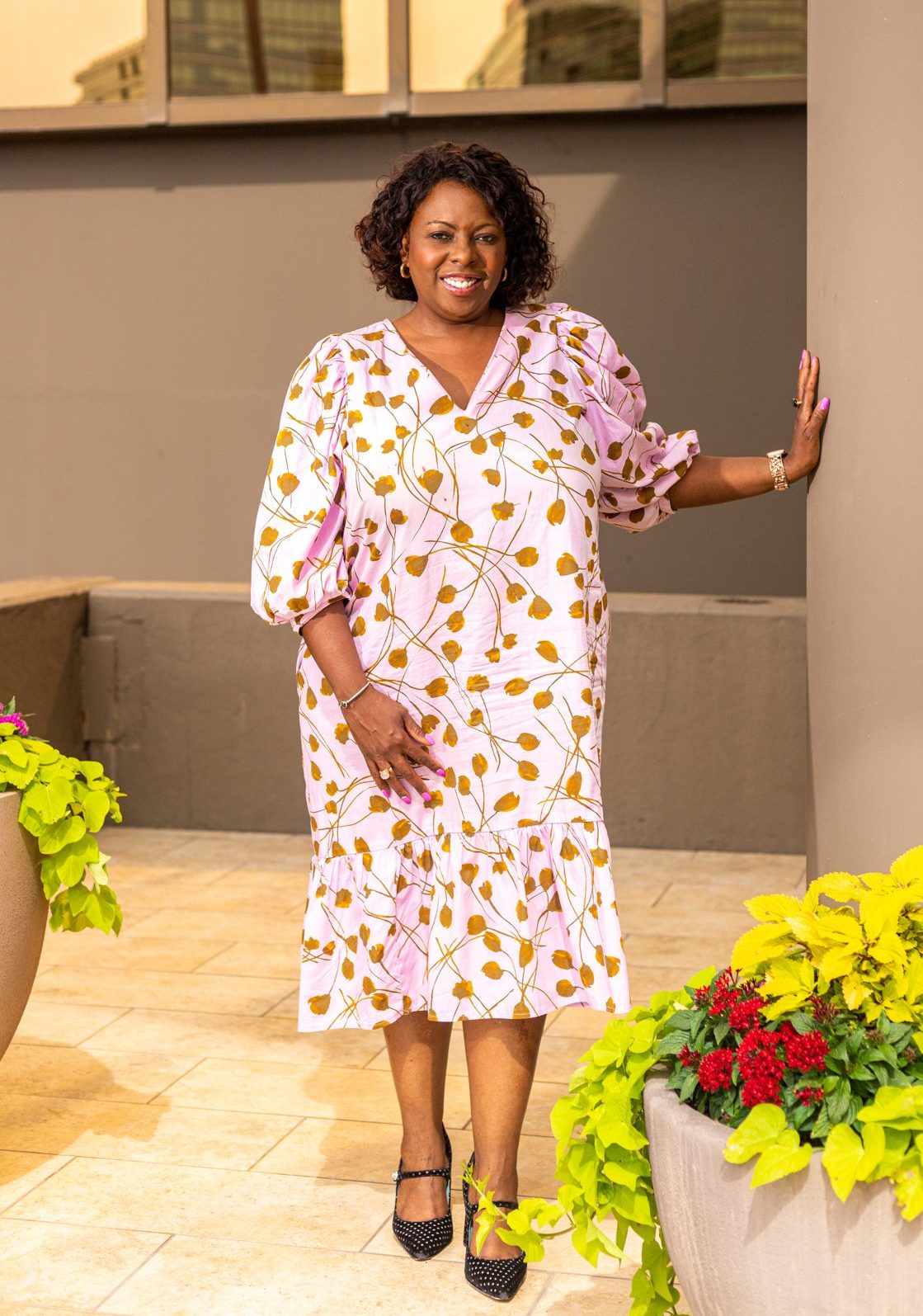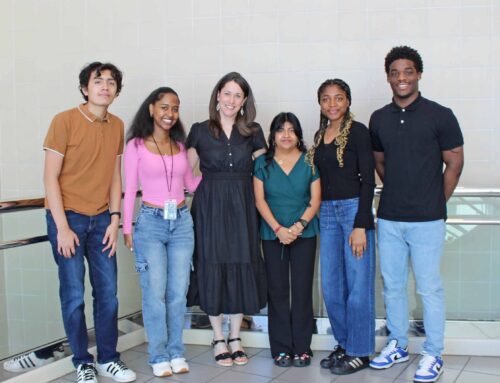
Photography by Jessica Turner
Michelynn “Miki” Woodard never stayed in one place. The Wisconsin native moved to England at 9 years old. She moved to Puerto Rico as a teen. And by the end of high school, she was back in the U.S., in Atlanta, Georgia.
Woodard always dreamed of traveling the world. Her second dream was inspired by her dad, who was a successful business leader with SC Johnson.
“Watching my dad, who was a business leader at that time, there weren’t that many African American business leaders. And for me, a lot of my dream was around what I saw, and what I saw him doing was finding ways to lead, finding ways to do new types of work,” Woodard says.
Never having a permanent home, Woodard became a curious woman.
“I had to meet people growing up. I had to figure out how to adjust, how to acclimate and how to understand the culture and the perspectives and the people that I was around,” Woodard says.
After graduation, Woodard went straight into philanthropy and took her first job with Talent Agency, based in Los Angeles. The company helped influencers and celebrities when they had personal interests in giving back.
Woodard worked closely with Kanye West on his foundation until his mother died in 2007. Woodard’s father died within six months. This was the turning point for them and both decided that they needed a fresh start.
Woodard moved back to Austin to be closer to her family.
In 2013, she moved to Dallas to run corporate philanthropy for JC Penney, where she implemented the round-up system. This gave nonprofits and charities a chance to raise money when customers rounded up to the nearest dollar on their purchases.
In 2016, Woodard co-founded The Artemis Agency with four colleagues, a 100% women-led social impact agency. They all had varying backgrounds in social impact and worked with celebrities.
“We suddenly got the courage and the conviction and the chutzpah and the resources that we needed to say, we can do this on our own and we can really think about, how do we help others create what their legacy could look like,” Woodard says.
Her clientele includes the likes of Lady Gaga, Lebron James and Dwayne Wade. Naming a favorite would be like naming a favorite child, she says.
“A lot of times, it’s been a series of private moments. I love that the conversations I had were filled with trust and vulnerability and real thought around how they might think about giving back,” she says.
This past February, Woodard was appointed the new president and CEO of the Texas Women’s Foundation, a nonprofit whose goal is to help women across Texas with economic and leadership opportunities.
Why did you choose to join the Texas Women’s Foundation?
I’m grateful that they chose me. The pandemic happened, and we were bleaching our groceries, and we were wearing gloves, and we didn’t know what was happening. I could have stayed working virtually from Austin and figuring out what I wanted to do, I just am gonna say, yes. I heard about this amazing opportunity. I knew
the success of their work. I knew my predecessor and just how great she had done at leading this organization, and very rarely are you able to step into a role where the organization is healthy and where the leader had planned to leave.
Why are you passionate about helping women?
My great, great-grandmother I talk about a lot. She graduated from college in 1890, which is very rare. I’ve seen strong women in my family. I’ve seen a lot of sacrifice in my family and in the kind of community around me. Your first role models are the ones that you see, and that’s kind of where it started.
How do you think JC Penney prepared you for what you’re going to do now and your plans for your company?
One is really thinking about scale. One of the first things I did was work with the leadership there to create one of the first round-up programs. We started making a million dollars a month, 44 cents at a time. I had to change charitable partners every 30 days, because we just had so much money that we were able to give because of the generosity of customers. So for me, it’s always that kind of big-thinking business model. How do we think about making something sustainable? What are all the ways that we’re reaching people that want to be generous, that want to contribute, that want to participate?
How important was it for you to be a woman of color in your career?
I’ve seen people break those barriers, and that inspires me. When you’re taking that next role, a lot of times as a woman and a person of color, you might be like, I don’t know, do I really fit? Do I have all the qualifications? Am I going to succeed? Well, you just say yes, and know that you can be trained and know that you can learn and know that you can do it.
Where did your nickname Miki come from?
My mom named me after one of her friends, Michelynn Yvonne. But my dad wanted to make sure that people didn’t call me Michael or people didn’t make up what my nickname would be. From the beginning, he was like, I’m going to tell you now what her nickname is going to be and what people should call her. Although the funny thing is, he is also the one that usually called me Michelynn Yvonne.
What is something that people should know about you?
If people know me well, then they know my family. I think everybody has to have a why and that’s always going to be my why. If people know me well, they’re going to know my face, too. That’s another part of my why and it’s another part of how I feel I can move the mountains that sometimes feel insurmountable that are around me. If people know me well, they’re going to know my pets, because I love animals. And so I think it’s a mix, right? How do you not only show up in a room and as a leader, but how do you really let people into your heart and who you are? That’s what makes the difference.
Interview has been edited for clarity and brevity.





